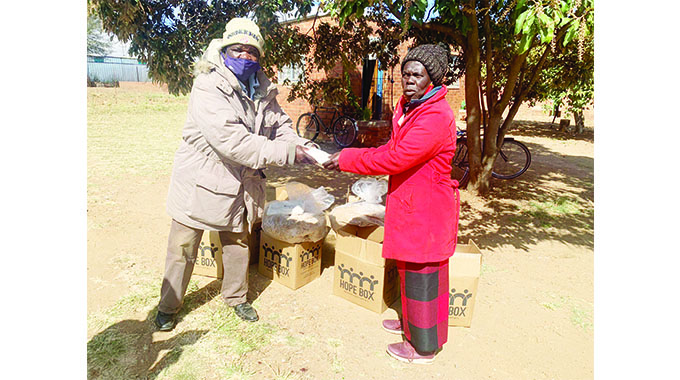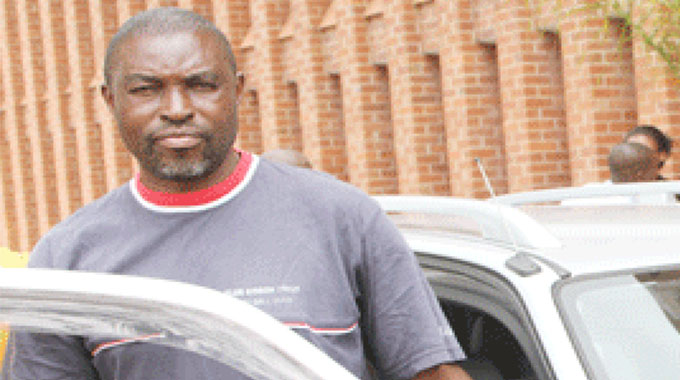The story of Byo’s widows

Raymond Jaravaza, Showbiz Correspondent
SHE wakes up at 4am daily — risking the possibility of being mugged or even worse, losing her life to walk a two-kilometre stretch from her home in Nketa suburb to the main road to catch a commuter omnibus to Bulawayo’s marketplace in the city centre.
It doesn’t matter that Viola Nuku has been doing the same routine for the last 20 years, but every time she leaves her home, her heart skips a beat.
For the 66-year-old widow, the choice between waking up at that unholy hour and staying in bed is very simple; she and her seven grandchildren will starve if she decides against taking the trip to the marketplace to buy fruits and vegetables for resale.
The last two decades have been particularly difficult since Nuku, a war veteran who says she trained in Lusaka, Zambia in her early 20s, lost her husband in 2001.
“The responsibility of being left to fend for five young children as a single mother is just too much to handle. Life doesn’t stop simply because a woman has lost her husband; children must still go to school and eat,” Nuku tells Saturday Leisure.
The granny says she got a rude awakening barely a few months after the passing of her husband when all the relatives that had pledged to help in assisting raise her kids suddenly retreated into the background.
“Relatives make all sorts of promises at the funeral of their loved one. I was reassured that I must not worry about the welfare of the kids because they would be well taken care of, but those comforting words proved to be nothing, but empty promises.
“I quickly learnt to be both the father and mother to my children and the first thing I did was to find means to earn a living and as an uneducated widow, self-employment was my best option. Up to this day, I survive on selling fruits and vegetables here in Nketa,” she said.
Although selling fruits and vegetables puts food on the table for Nuku and her seven grandchildren — some of whose parents are deceased or moved to South Africa for greener pastures — it is still, a hand-to-mouth business that leaves nothing to save for rainy days.
“You learn to be grateful just for getting enough to buy food for that particular day because there is barely any money to save. The monthly pension that I get from the war veterans fund is also too little and can barely pay for rentals and buy electricity,” she added.
Nuku’s story is almost similar to that of Prisca Sithole although the daily struggles of fending for her family are nothing compared to the pain of being accused of ‘killing’ her husband by her in-laws.
Sithole lost her husband in 2014 and although the circumstances of his death are well-known, that has not stopped the in-laws from pointing their fingers at her for having a hand in his death. As if the blame is not enough, her in-laws continuously threaten to evict her from her marital home in Emakhandeni suburb.
“My husband was a truck driver and died in a road accident, but somehow in the eyes of my in-laws, I’m involved in their son’s death. In short, they accuse me of bewitching him to be involved in the accident so that I take over the house here in Bulawayo and our homestead in Nyamandlovu.
“They forget that in as much as he was their son, he was also my husband and the father of my children and that life has not been the same since he passed away,” said Sithole.
The mother of three survives by selling second-hand clothes in the city centre.
“It used to be a lucrative business a few years ago, but now there are too many of us selling second-hand clothes. Almost every street corner in the Lobengula Street area has people selling second-hand clothes so competition is now too much for me to get any meaningful returns,” she narrated.
Sithole’s life story is one of the thousands experienced by Zimbabwean women who, upon becoming widows, lose much more than just their husbands.
Widows stand to lose their source of livelihoods after being stripped of their property; from homes, businesses, vehicles to livestock.
The world marked International Day for Widows on June 23, but there is no doubt that it went unnoticed by a lot of widows in the country.
The day was set aside by the United Nations to recognise the plight of widows all over the world.
It also aims to address the outrageous cases of injustice meted out to widows and the role of poverty in their delicate state.
It is against this background that gender and human rights experts expressed concern over the “absence” of laws protecting the fundamental rights of widows, who suffer from discriminatory policies.
Many-a-time widows in Zimbabwe suffer humiliation and pain in the name of culture and there is need by the Government to empower them by acknowledging their fundamental rights. According to a new report by Human Rights Watch titled “You will Get Nothing, Violations of Property and Inheritance Rights of Widows in Zimbabwe”, in-laws often tell women shortly after the deaths of their husbands that the relatives intend to take over the homes and lands or other property where the husband and wife had lived for decades.
Sithole feels that although her in-laws have not succeeded in kicking her out of the matrimonial home in Bulawayo and the homestead in Nyamandlovu, they have certainly trampled on her dignity as a woman and mother.
“I didn’t just lose my husband, I lost my dignity as a human being because nothing hurts like being labelled a witch and being accused of killing the father of my kids. It’s a constant battle trying to raise three children and at the same time protect them from hurtful words being spread by their father’s relatives.
“In the initial weeks and months after the death of my husband, I had a lot of stress, confusion and fear, but thought it would get better with time, but honestly nothing has changed. My children give me the will to live although sometimes I feel overwhelmed with stress,” said Sithole. — @RaymondJaravaza












Comments